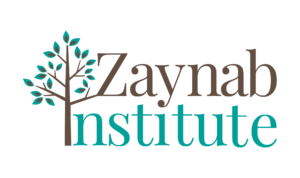Frequently Asked Questions
Find answers to some of the questions we get asked the most here - if you have any questions you can’t find answers for, please contact us.
Is there a fee for these programs
All courses offered by Zaynab Institute are free of charge and run on donations. However, to ensure students are committed, there is a registration fee to some of our courses
Is there an age limit?
Students should be at least 18 years old for both the Quran Program and Classical Islamic Learning Program. This is due to the programs involving quite a lot of discipline and indepedent effort.
How are Classes Conducted?
Classes are conducted online through live audio streaming via Zoom which includes visual aids through screen sharing and a chat box for live interaction with the instructor. Classes also use Canvas as the Learning Management System (LMS) which includes discussion and assignment submissions
Do I need to know Arabic?
Some basic ability to read Quran in Arabic is assumed at the beginning of both the Quran Program and the Classical Islamic Learning program (CIL). In CIL, basic Arabic grammar is covered at moderate pace with English explanations. All the books covered are in English along with Arabic in some of the advanced subjects. You do not need to have any Arabic skills for the short courses.
Is there an attendance policy for the Quran Program (QP) and the Classical Islamic Learning Program (CIL)?
For the CIL course attendance is regularly marked for each class. To qualify for certification, students need to maintain at least 70% attendance each term. Recordings are available for two weeks after the classes have taken place, when live attendance is not possible.
For the Qur’an Program, the study is self-paced, as this program is pre-recorded. Students can listen to recordings in their own time. Quran Program Regular students must attend tutorials and meetings with TA’s and staff when required, and finish the recordings within the timeperiods provided.
How difficult is the Classical Islamic Learning program?
Classes are conducted in English and all material and classes should be accessible for most people with a secondary/highschool level education and with adequate IT skills to attend online classes and use and online learning platform.
Is the Classical Islamic Learning program (CIL) an Alimah course?
No. Although the CIL course does teach many of the subjects tha a traditional Alimah course teaches, this course does not include the higher level hadith studies that an Alimah course teaches in it’s last 2 years. CIL course students can, upon their graduation, apply to continue alimah studies elsewhere, preferably in an onsite institute.
What has changed in Classical Islamic Learning program (CIL)?
We have made the CIL course shorter, starting from 2024-2025. This does not mean, however, that the content of the coruse has changed much. Instead we have opted to teaching some shorter courses during term breaks, and allowing students to choose elective courses. Please see the CIL site for a detailed course description and for subjects taught.
How is the Classical Islamic Learning program (CIL) different from the Quran Program (QP)?
The Qur’an Program is a recordings based, self-paced tafseer program that can either be done as a diploma course – which involves exams, quizzes and live tutorials, or as an auditor – which means the students only listen to the lessons at their own pace.
The CIL program is taught live, with recordings available for those students who cannot make live class times. The CIL program also teaches Qur’an Tafseer but also other classical subjects like ahadith, fiqh and Arabic.
What if I need to miss some classes during the year due to university exams, professional commitments, or family concerns?
Our courses are designed to cater to professionals, university students as well as stay-at-home moms. We do understand that there may be occasions when you may not be able to attend class for valid reasons. Recordings are available so that students may catch up with the classes they have missed after approval from the administration.
What equipment and tech capabilities are required?
A smartphone, tablet, laptop or PC, with a working internet connection is essential. Students are expected to have a basic understanding of web browsing, accessing emails, and typing short answers or assignments which are all necessary in order to access classes and to submit exams. We recommend for students to use a PC or a Laptop to submit exams.
